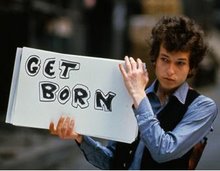Pondré una selección de citas del libro de Allen W. Wood, Kantian ethics, que corresponden a las dos últimas páginas del mismo.
This book has been about a certain kind of ethical theory – Kantian ethics. It has also been about ethics – about ethical issues, such as those about lying, sexuality, and economic justice. These two points of focus are closely related, but they should not be confused.It makes sense to have strong convictions about ethical issues – for instance, that it is always (or nearly always) wrong to falsify declarations or lie to oneself, or that the prevailing economic system or sexual mores are in need of radical reforms. But the same is not true of ethical theories.The function of an ethical theory is to help us examine and criticize our ethical convictions, sometimes to reach new ones, to defend these convictions, and to understand the rational basis of them. But our powers of reason are so fallible that we can never hope to reach certainty or confidence about this basis. Kantian ethics may be (my own conviction is that it certainly is) the best kind of theory human beings have devised as a background for their moral reflections. But the ground of its principal value, which we explored in Chapter 5, is vulnerable to doubt. In Chapter 7 we saw that Kantian ethics depends on the conviction that our will is free, but it admits that we do not understand how this freedom is possible, and that the very idea of it may be in principle incomprehensible to us.The study of ethical theory is nevertheless valuable to us as reflective moral agents, despite the fact that if pursued honestly and diligently, it will leave us in a state of hopeless perplexity about the foundations of morality from which there is no prospect of escape. Or rather – it is utterly indispensable to us as moral agents precisely because it is bound to condemn us to that state.There can be nothing more important to us in this brief flicker of life than whether we have acted as we should or have failed to do so (or as Kant would say: “in conformity to duty” or “contrary to duty”). Yet the ultimate basis of our judgments about this matter of supreme importance will always remain obscure and uncertain.This is the way I propose that Kantian ethics should now think about the contrast that Kant himself drew between “the starry heavens” (the prospect of which humbles us to insignificance) and “the moral law” through which we gain a sense of our sublime dignity (KpV 5:161–3). Kantian ethics no longer needs (if it ever did) the supernaturalism implied in Kant’s contrast, but in the contrast I am proposing in its place is also something that is earnest and uplifting yet at the same time frustrating, humiliating, frightening and comfortless. It is one of the tasks of philosophy to make us aware that neither religion nor science offer us any prospect of certainty or any consolation as we face the absurdity of the human condition.Our chief business in life is that our thought and conduct should live up to the dignity of rational nature. But our human condition has arisen, and is sustained, by the merest cosmic accident. It can never have any greater meaning than we, with our feeble and errant rational powers, are able to give it by acting as we ought, according to reason.
Lo acabo de terminar.

Por cierto, esa es una significativa foto de Allen W. Wood al costado de la tumba de Immanuel Kant.


























No hay comentarios:
Publicar un comentario